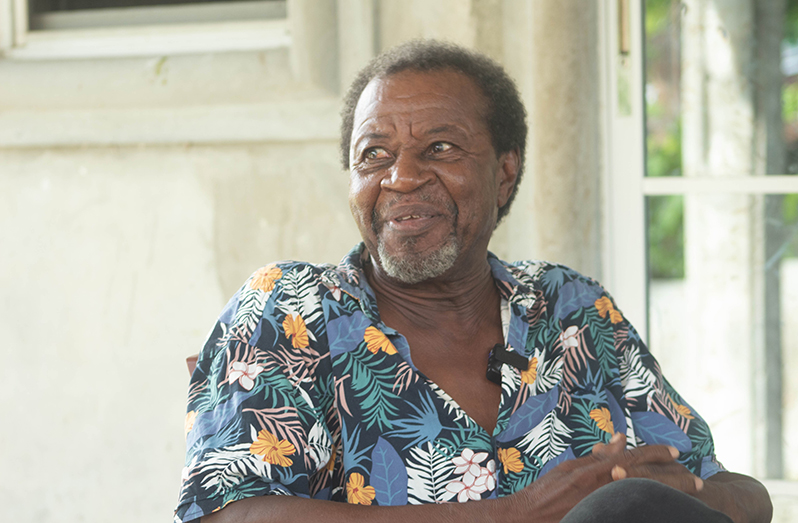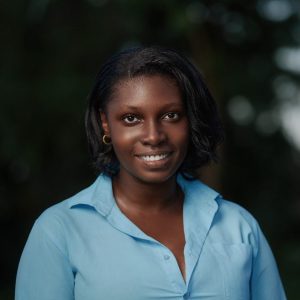Local history enthusiast on the relevance of history
HISTORY and the past are of little importance to many, facts to some, but it is vital to very few. David Joseph is one of those few who see the past as significant as the future. David has dedicated the latter part of his life to research. Apart from being a reservoir of knowledge from Melanie’s past, he also has a particular spark and passion for African history. David’s interest in African knowledge was, like most things in his life, connected to the village of Melanie.
Melanie was founded as part of a ‘Feed, Clothe and House’ initiative. “The government had an FCH project. That is feed, clothe and house the nation. It was one of the programmes they had and I believe it started sometime in the seventies.” David shared. The programme was rolled out country-wide. And many villages at the time had to play a role in some aspect of the campaign. “Kimbia was the cotton for the clothing. Mahaica Mahaicony Abary that was the rice. That was the feeding. And hence Melanie was the housing,” David shared.
David went on to explain the land which houses Elizabeth Hall was among the first land acquired. “What the government of the day did to get a house, you had to get land. And the government went to Guysuco for the land. And the land they were given was block thirteen, Elizabeth Hall.” David said. David comes from a large family and having his own house was something he worked towards. He said, “I came here in 1975, but I moved in 1979. What led me to live in Melanie was not really a desire of mine. I come from a big family, eight boys and eight girls, then.”
“I dropped as number 13 out of the 16. I joined the army on October 4, 1972. I spent some time in the interior, in the Corentyne and Essequibo,” he recalled. It was during his time in the army that he had the opportunity to work and later live in Melanie, and he took it. “After this housing drive start with the FCH, I was in the army at that time as a construction engineer, and they wanted tradesmen and they chose me. After the houses reached a certain stage for wiring, so that is how I came up here.” David came to Melanie and was 10 and was given the chance to live in the village via Melanie’s co-op.

At the time of the co-op and the initial stages of the village, there weren’t many people, places or houses to talk about in Melanie. “At first, I think they had twenty-seven houses. If you go down Linden Drive, what we call Plaza Street, I think those houses were built but they had no other houses built. But nobody moved in yet, so all around was empty land.” David stated. “We had to join the Co-op. You had to be a member,” David stated. “At that time, I think it was a dollar or two. Because at that time, our money was very small.” It was this share capital that built not only the village but also its renowned Plaza. As David explained, “You had to take out shares and the share capital, according to the members, had to go into the investment of the shopping Plaza. The members share capital is what built the shopping plaza.”
The development of Melanie was no walk but the end result, David said, was worth it. “It was a national venture as a cooperative Guyana. It was rough like anything else. But the end product was that you received your own home.” Like many organisations and systems through the years, the co-op had its issues, and it later partnered with the Ministry of Housing “There was a problem in the co-op in 1979. And what the government of the day did was get the co-op officer at that time to appoint housing to manage the co-op. They managed it from 1979 to 1997, about eighteen years.” David shared.
In the years that followed, there were a number of disturbances regarding the allocation of land in Melanie David said and it was his urge to get to the bottom of the true history of Melanie that ignited his passion for research. David’s affinity for African history research began after a friend offered him a book that was meant to be thrown away. “I started doing African history when I wired Fogarty’s in 1991,” David said. He went on further saying, “This was amazing; while doing it they threw out William Fogarty’s books.”
The things he learnt, he says, changed his entire way of thinking. “My father was a preacher; he had his own church. That how all of us came up, in church. I grew up in catholic church.” David sated. Thus, his sudden exposure to a whole host of different cultures and history, was life changing to a young David. As he stated, “The largest section in the library was African history. It was then that I knew that Africa has 54 countries.” The things he was able to read and learn, David said, shaped him into the man he is today. “It changed my whole life because I never knew about it.”





.jpg)








